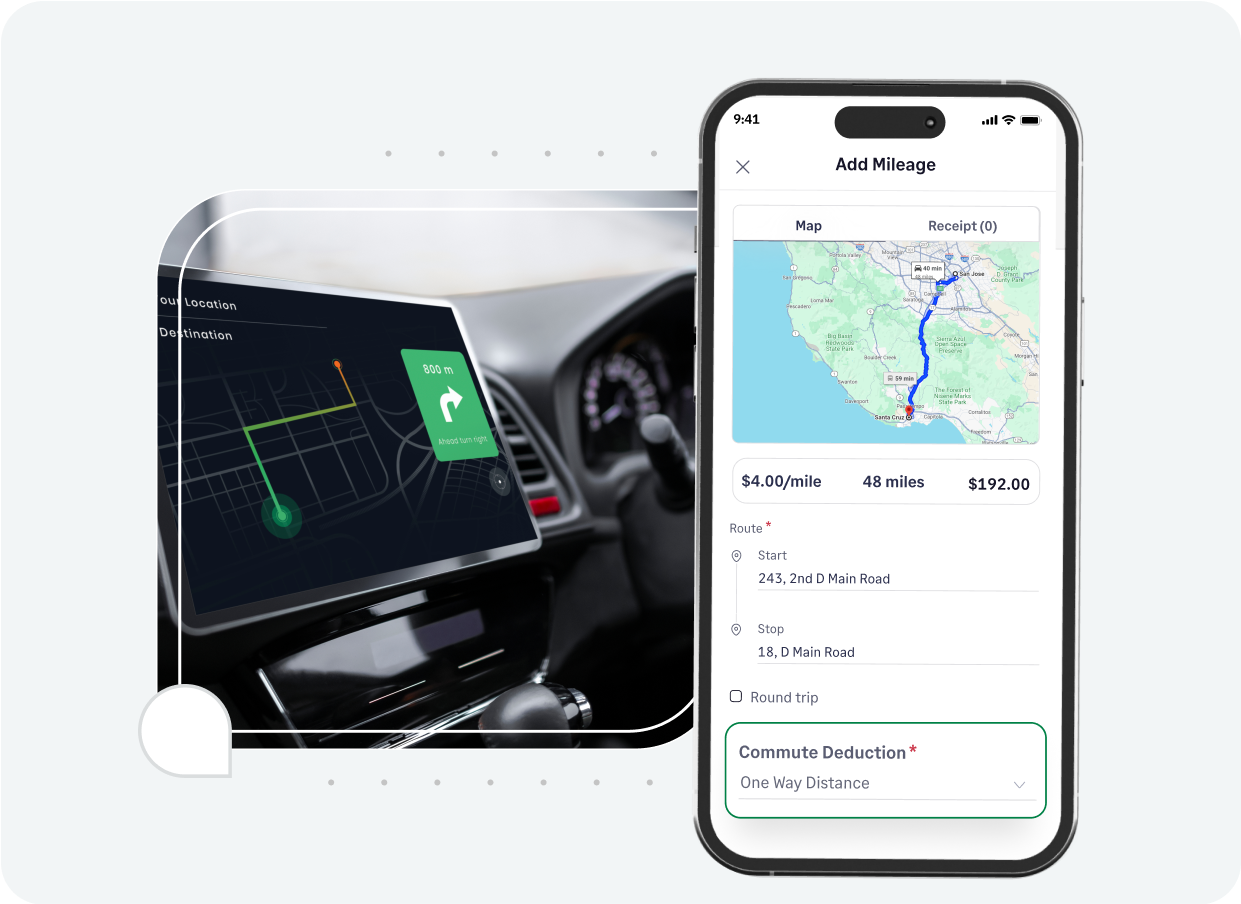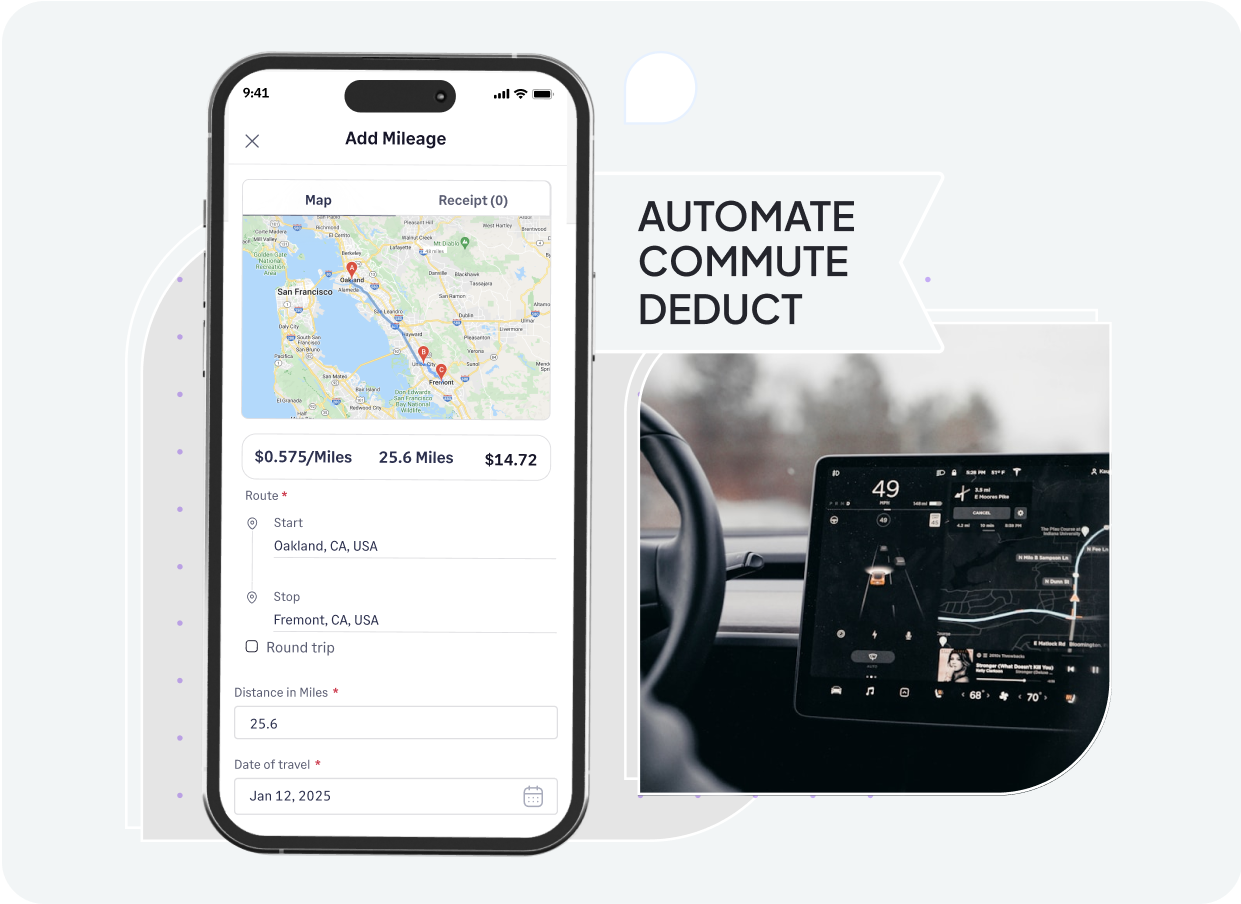Operating effectively in Hawaii's unique island economy means understanding the specific approaches to employee compensation, including how mileage reimbursement is handled.
While Hawaii aligns its public sector and workers' compensation reimbursement rates with federal standards, private employers must navigate these alongside Hawaii's robust minimum wage laws.
The prevailing national benchmark for these calculations is typically the rate announced by the Internal Revenue Service (IRS). For the year 2025, the IRS has established the standard mileage rate for business use of a personal vehicle at 70 cents per mile. This is an increase from the 67 cents per mile rate applicable in 2024.
In Hawaii, private employers are not explicitly mandated by a specific state statute to use this IRS rate for all general business travel. However, many find it a practical and fair standard for several reasons:
- It provides a clear, nationally recognized basis for reimbursement, simplifying policy.
- When payments are made under an accountable plan at or below this federal rate, they are generally non-taxable to the employee and a deductible expense for the employer.
As of January 1, 2025, the key IRS standard mileage rates are:
- 70 cents per mile for business use of a vehicle.
- 21 cents per mile for medical or moving purposes (note: the deduction for moving expenses is currently limited to active-duty members of the U.S. Armed Forces).
- 14 cents per mile driven in service of charitable organizations.
Other relevant rates in Hawaii include:
- Hawaii State Employee Rate: State of Hawaii employees who use their personal vehicles for official state business are reimbursed at the prevailing IRS standard mileage rate, as per Hawaii Administrative Rules (HAR) § 3-10-13. Therefore, for 2025, this rate is 70 cents per mile.
- Workers' Compensation Medical Travel: Injured employees in Hawaii are entitled to reimbursement for reasonable travel expenses to obtain necessary medical services, as stipulated by HAR § 12-10-25. This rate is also set at the same level as that for state employees, meaning it is 70 cents per mile for 2025 (up from 67 cents per mile in 2024).
For historical context, here are the IRS standard business mileage rates from recent years:
Hawaii Mileage Reimbursement Calculator
Quickly determine your potential mileage reimbursement with our Hawaii Mileage Reimbursement Calculator.
How to Use the Calculator:
- Select the correct tax year: Choose the year for which you're calculating reimbursement (e.g., 2025, 2024), as the applicable IRS rates can change.
- Input your business miles: Enter the total number of miles driven for business purposes using your personal vehicle.
- Calculate your reimbursement: The calculator will automatically apply the official IRS standard mileage rate for the selected year and display your estimated reimbursement amount.
This tool offers a straightforward estimate based on federal standard rates, serving as a useful reference for managing travel expenses in Hawaii.
Calculate
Results
Some Important Hawaii Mileage Reimbursement Laws
While Hawaii does not have a single statute compelling all private employers to reimburse mileage at a set rate for general business use, a combination of wage laws, workers' compensation rules, and public sector practices shapes the landscape:
1. Hawaii Wage and Hour Law (HRS Chapter 387)
Hawaii's minimum wage is $14.00 per hour as of January 1, 2024, with scheduled increases to $16.00 in 2026 and $18.00 in 2028. This is a crucial consideration.
Employers must ensure that unreimbursed work-related expenses, including mileage, do not effectively reduce an employee's pay below this state minimum for the hours worked.
Hawaii's wage payment laws (HRS Chapter 388) also generally restrict deductions for expenses that primarily benefit the employer if such deductions cut into minimum wage earnings.
2. Workers' Compensation (HAR § 12-10-25)
Hawaii's workers' compensation rules mandate that employees are reimbursed for reasonable travel expenses incurred to obtain necessary medical treatment for work-related injuries.
The mileage rate for this aligns with the state employee rate, which is 70 cents per mile for 2025.
3. Absence of General Private Employer Mandate on Rate
Beyond ensuring minimum wage compliance, Hawaii law does not specifically dictate a mileage reimbursement rate for private employers for general business travel. Company policy often determines these practices.
4. State Employee Travel Regulations (HAR § 3-10-13)
The State of Hawaii reimburses its employees for official travel in personal vehicles at the current IRS standard mileage rate.
This practice sets a precedent for a fair reimbursement level within the state.
Hawaii Mileage Reimbursement Law vs. Federal Law
The framework for mileage reimbursement in Hawaii is built upon robust state wage protections complemented by federal standards, particularly those from the IRS.
Fair Labor Standards Act (FLSA)
The FLSA establishes a national minimum wage ($7.25 per hour). A key principle is that an employee's actual earnings must not fall below this federal minimum after accounting for any unreimbursed, employer-benefiting business expenses like mileage.
If such costs effectively lower an employee's pay beneath this line, the employer is liable for the difference.
Hawaii's State Laws
The state laws however, generally provide more substantial protections:
- The state's minimum wage ($14.00 per hour in 2024, with future increases planned) is significantly higher than the federal rate. Consequently, Hawaii employers must primarily ensure that unreimbursed driving expenses do not violate this higher state minimum wage.
- Hawaii explicitly links its state employee mileage reimbursement and workers' compensation medical travel rates to the current IRS standard rate.
IRS Regulations
The regulations concerning standard mileage rates (e.g., 70 cents per mile for business in 2025) are primarily for federal income tax purposes. They do not legally obligate employers to reimburse at that specific amount.
However, their practical importance is immense. If a Hawaii employer uses an accountable plan and reimburses at or below these IRS rates, the amount is generally non-taxable to the employee and is a deductible expense for the business.
This makes the IRS rates a very common and advisable benchmark.
In Hawaii, the state's high minimum wage is the primary driver ensuring employees are not out-of-pocket for necessary business mileage to the extent it erodes their base pay.
State rules also directly adopt IRS rates for public employees and workers' comp travel, reinforcing this standard.
While the FLSA offers a federal safety net, Hawaii's own wage laws are typically more protective in this context.
How Sage Expense Management (formerly Fyle) Can Automate Mileage Tracking
Modernize your approach to mileage reimbursement in Hawaii with Sage Expense Management's mileage and expense tracking software. Save time, enhance accuracy, and ensure compliance with ease.
- Automated GPS mileage logs: Captures precise travel distances using Google Maps, ensuring reliable mileage records for every trip.
- Smart rate application: Configures IRS standards, Hawaii's state-aligned rates, or unique company figures, applying them automatically to claims.
- Clear commute mileage management: Helps easily define and deduct non-reimbursable personal commute travel for fair and compliant calculations.
- Simplified recurring trip claims: Enables employees with regular routes to set them up once for automated future mileage submissions.
- Embedded policy enforcement: Integrates your company's expense rules to proactively flag any claims that deviate from established guidelines.
- Seamless data flow to accounting: Connects directly with popular accounting systems like QuickBooks, Xero, and NetSuite, reducing manual entry.
- Faster employee reimbursements (US only): Offers direct ACH deposit for approved mileage claims, ensuring prompt payment.
Sage Expense Management equips Hawaii businesses to handle mileage expenses efficiently, supporting compliance and providing a better experience for employees.


































